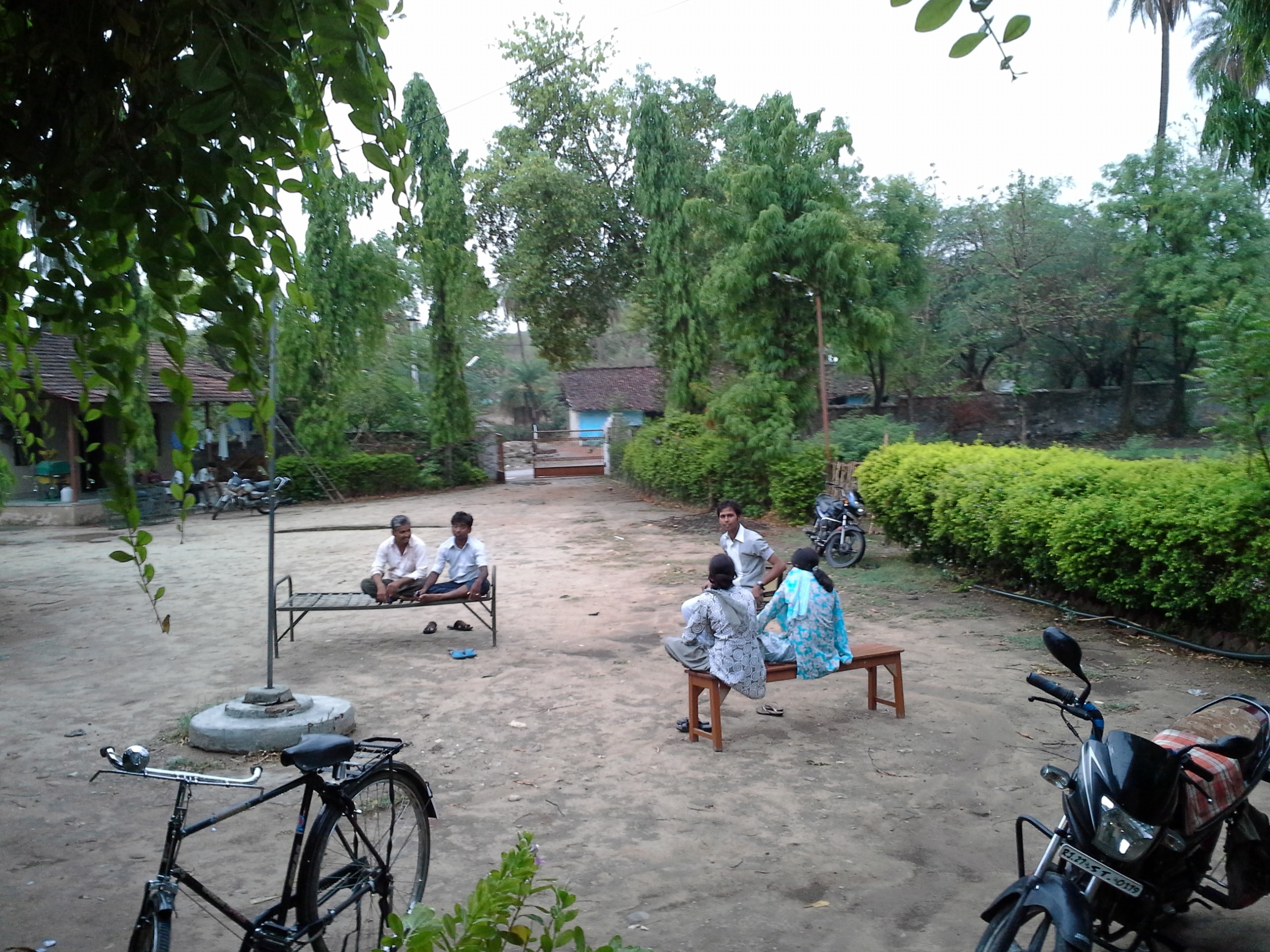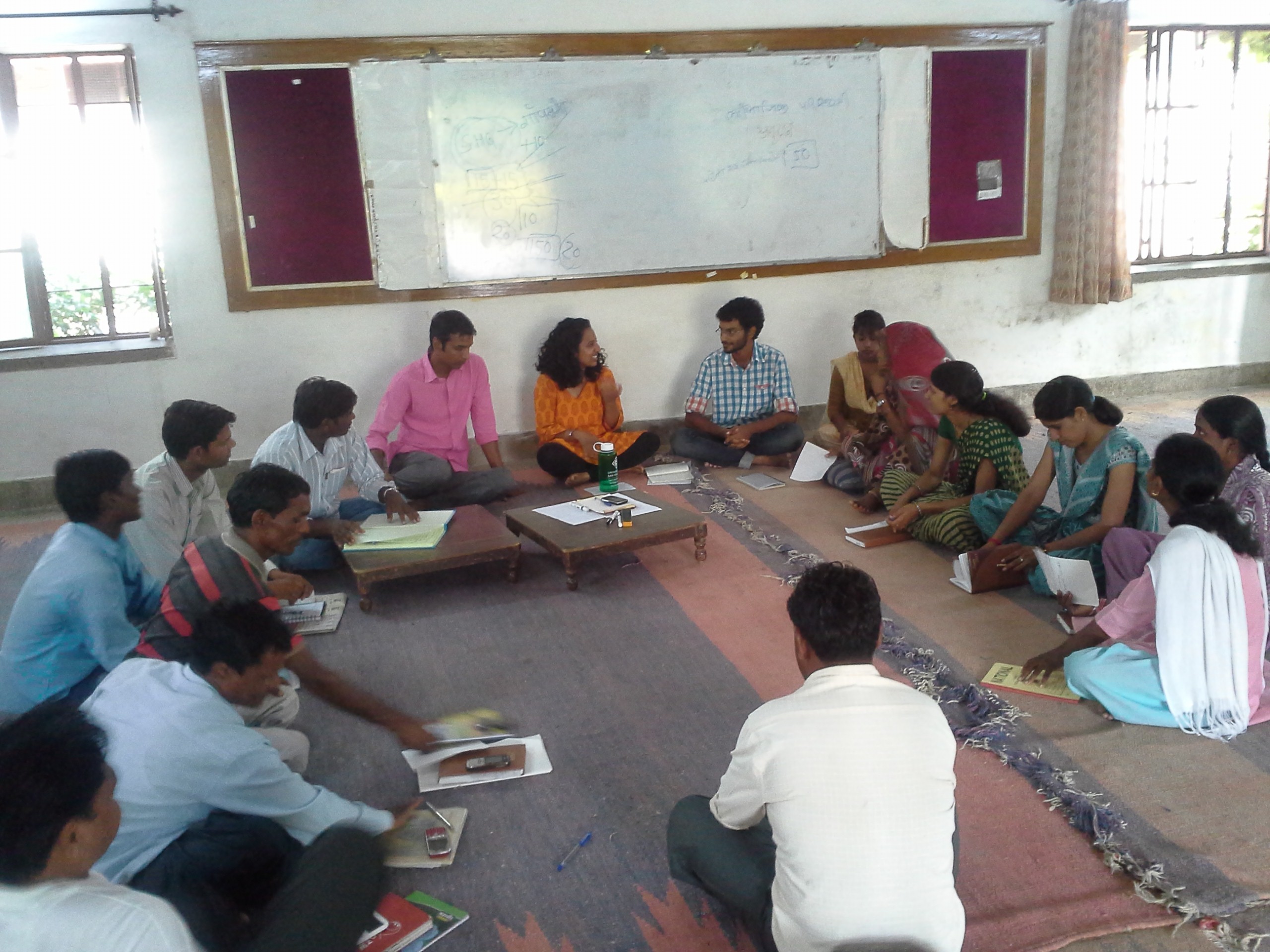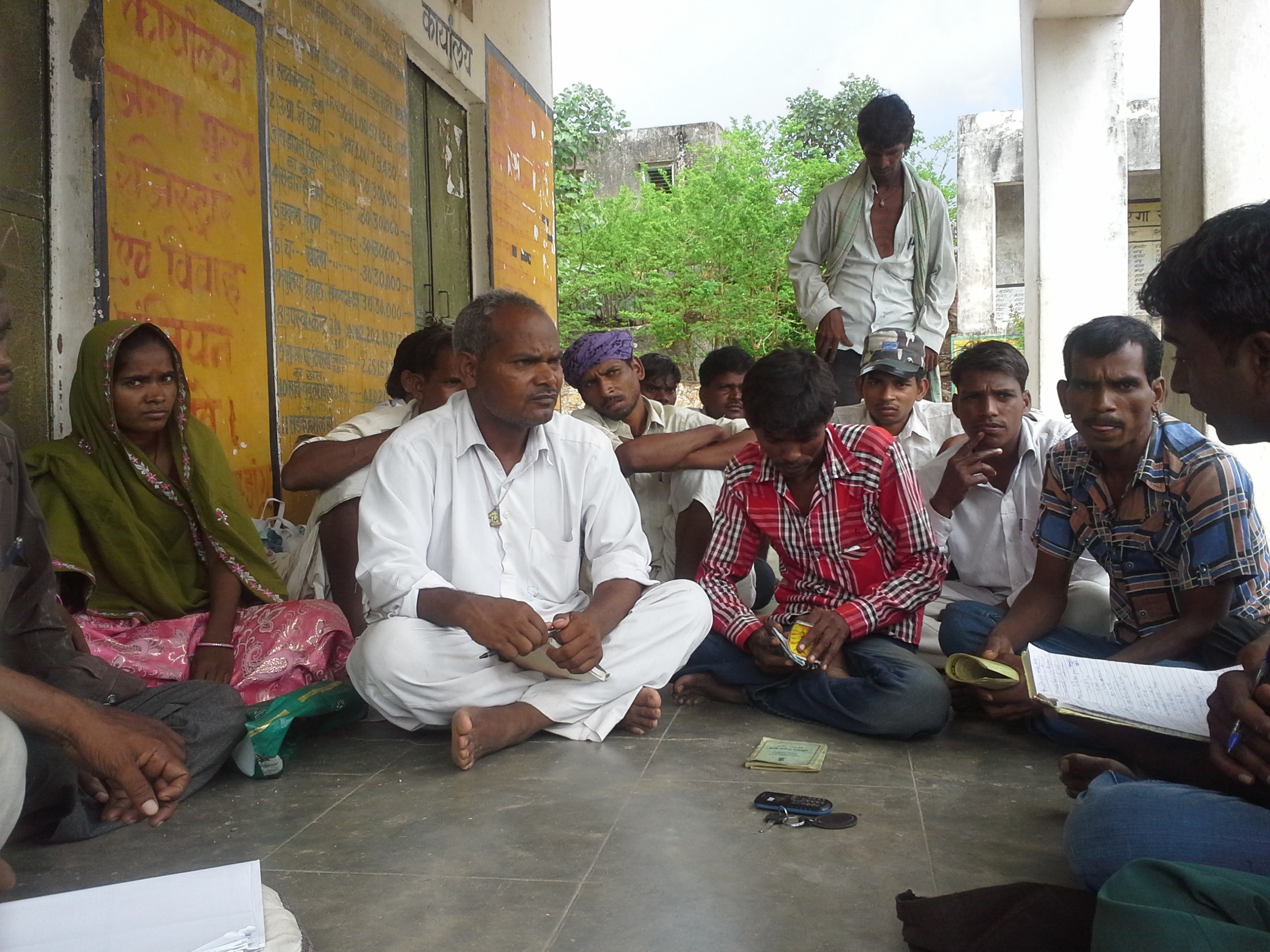Gender, Power and Democracy in India: A Sarlo Scholar’s Experience
By Neema Jyothiprakash
“Zindabad! Zindabad!”
It means long live the revolution; I have only seen it on TV, as protesters chant, or in Bollywood movies. The second day at my organization I interned with, I saw it said as hands clasped together in greeting. People had come from 3 or 4 hours away for the monthly staff meeting; they were tired from traveling and evening had arrived, but “Zindabad!” was said with the energy it commands.
I asked why it was used as a greeting, and my supervisor, Sarfraz said “We don’t quietly put our hands together, bow and say ‘namaste.’ We are activists! So we say ‘Zindabad!’”
It’s the McCarthy Center at USF that brought me to this meeting of activists in Rajasthan, India. I participated in the McCarthy Center’s Global Service-Learning Fellowship, where I interned at a local grassroots NGO in Udaipur, Rajasthan, created my own sustainable development project, and designed and conducted academic research.
My organization, Kotda Adivasi Sansthan (KAS), is a rights-based organization that seeks to empower and educate tribal and indigenous communities in Rajasthan and Gujarat.
The organization campus is 3 hours away from Udaipur, deep in the rural forest areas of Rajasthan. I stay there 5 days out of the week and come back to my host family in the city on the weekends. It’s an office, but also a home because everyone who works there lives there. Everyone laughs loudly, is silly and childlike, banters like family, and works at odd hours in 3-hour increments. We stop for chai 4 times a day, take afternoon naps, and use old bed frames to sit outside in the evening when it’s cooler.
 The days are long and there is no pressure to be productive and fix the world. I am asked on the first day how the States are different from India and this concept of the time is the first thing I remark about. They laugh knowingly, and tell me that I only have one life so I might as well enjoy it and relax. I find it comforting how easily I can slip back into this Indian concept of time, how easily I can let go of the need to constantly be productive, to discover exciting things, to break intellectual ground, to change the world from here.
The days are long and there is no pressure to be productive and fix the world. I am asked on the first day how the States are different from India and this concept of the time is the first thing I remark about. They laugh knowingly, and tell me that I only have one life so I might as well enjoy it and relax. I find it comforting how easily I can slip back into this Indian concept of time, how easily I can let go of the need to constantly be productive, to discover exciting things, to break intellectual ground, to change the world from here.
But I’m focused enough to design my project, which had 3 components: 1) designing and facilitating three trainings on gender and power for the community and staff, 2) creating a training tool for capacity building of women through self-help groups, and 3) creating an educational curriculum for tribal youth about democracy and consensus-based decision-making.
My project was the marriage of two things: asset mapping of the Kotda community and asset mapping of myself. What are the strengths and gifts within the community that I can combine with my own strengths and gifts? Through this experience then, I learned an incredible amount about my own capabilities, and I also learned an incredible amount about a specific local community—the various power dynamics, the narratives embedded within the community, the challenges, the successes, what holds the community together, and what pulls it apart.
 A lot of this knowledge came from “going into the field:” I attend panchayat (village council; India’s most decentralized form of democratic governance) meetings about forest rights, employment for rural communities, and women’s self-help groups. I observed, took notes, and interviewed mostly women—those that were political leaders and those that were mainly householders and farmers. These experiences that made me fall in love with India in way I never had before. As an Indian-American, I had been to India previously, but never in this capacity. Politics is dynamic, daily, urgent, and radical in the villages.
A lot of this knowledge came from “going into the field:” I attend panchayat (village council; India’s most decentralized form of democratic governance) meetings about forest rights, employment for rural communities, and women’s self-help groups. I observed, took notes, and interviewed mostly women—those that were political leaders and those that were mainly householders and farmers. These experiences that made me fall in love with India in way I never had before. As an Indian-American, I had been to India previously, but never in this capacity. Politics is dynamic, daily, urgent, and radical in the villages.
 Village meetings and the culture of community organizing I was exposed to is what draws me back to India more than anything after three months of being back in the States. As graduation approaches, I struggle to remember this and all the moments of wonder and peace I had over the summer. But reflection always brings me back and reminds me of my ties there. As this semester winds down, I keep one foot in the world of the Bay Area, job opportunities, and urban life. And I keep the other, firmly planted in the green forests and warm monsoons of rural India.
Village meetings and the culture of community organizing I was exposed to is what draws me back to India more than anything after three months of being back in the States. As graduation approaches, I struggle to remember this and all the moments of wonder and peace I had over the summer. But reflection always brings me back and reminds me of my ties there. As this semester winds down, I keep one foot in the world of the Bay Area, job opportunities, and urban life. And I keep the other, firmly planted in the green forests and warm monsoons of rural India.
